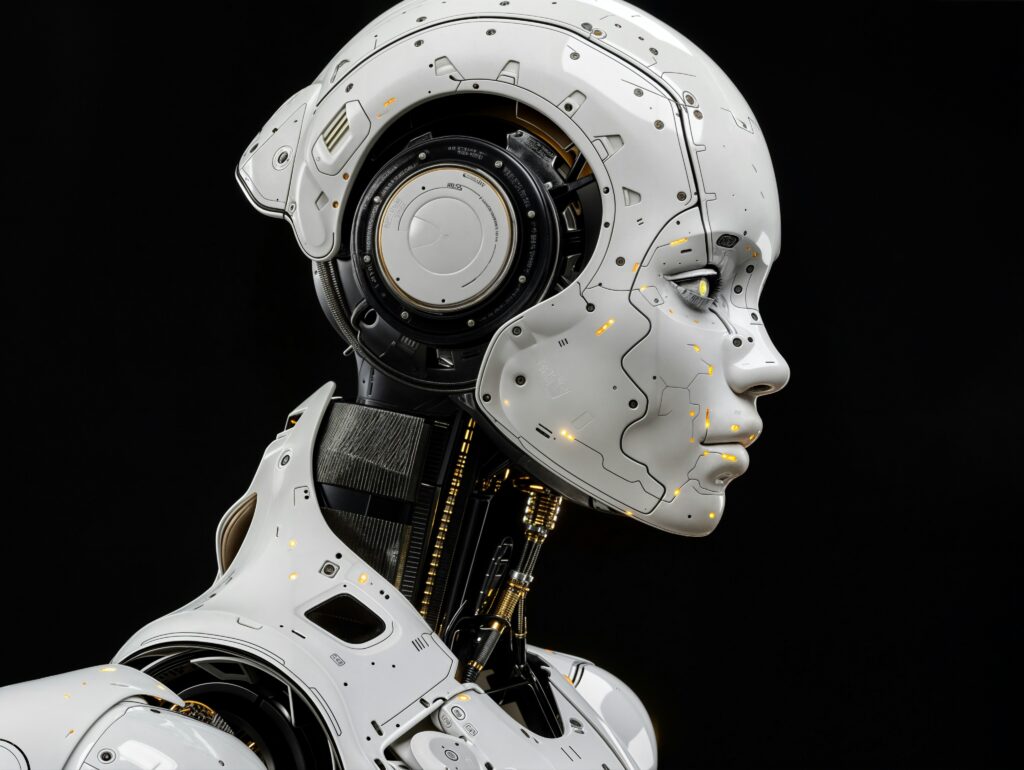
Published on: May 8, 2025
Will AI Control Humans in the Future? Exploring the Reality Beyond Sci-Fi Fears
Disclaimer:
This article discusses speculative and emerging scientific ideas in artificial intelligence. The information is intended for educational purposes and should not be taken as definitive predictions. AI safety is an evolving field, and expert consensus continues to develop.
The Fear vs. Reality of AI “Takeover”
The idea that artificial intelligence (AI) could one day control or replace humanity is a recurring theme in science fiction. From The Matrix to Terminator, pop culture has amplified fears of machines rising up. But what do scientists and AI experts actually believe about our future with AI?
The truth is more complex. While some researchers express concern over future risks — including a potential loss of control — the majority emphasize collaboration, safety, and building AI that serves humanity, not dominates it.
Is There Any Evidence of AI Becoming Uncontrollable?
As of now, there is no scientific evidence suggesting that AI has reached a point where it can act independently in a way that humans cannot control. However, a major review of AI research has shown that controlling increasingly advanced AI systems remains an unsolved challenge.
This doesn’t mean AI development should stop — but it highlights the urgent need for safety-focused research. Experts agree that as AI becomes more capable, ensuring it behaves in alignment with human values becomes critical.
What AI Can Do Today — And Tomorrow
AI has already surpassed humans in specific, narrow domains:
- Image recognition (e.g., medical imaging)
- Language processing (e.g., ChatGPT, machine translation)
- Strategic games (e.g., AlphaGo, poker bots)
- Data analysis and predictions
These are known as narrow AI systems — they excel in specific tasks but lack general intelligence or understanding. However, some researchers believe that Artificial General Intelligence (AGI) — AI with cognitive abilities comparable to humans — could emerge in coming decades.
Still, even the most optimistic projections place AGI years or even decades away. And human strengths like creativity, emotional intelligence, empathy, and moral judgment are unlikely to be easily replicated by machines.
AI as a Tool for Empowerment
Most experts don’t view AI as an existential threat, but rather as a powerful tool to support and augment human capabilities. AI can help in areas such as:
- Healthcare diagnostics
- Climate modeling
- Disaster response
- Scientific discovery
- Accessibility for people with disabilities
When used responsibly, AI holds enormous potential to improve quality of life and solve complex global challenges. The key lies in human-AI collaboration, where humans provide intuition, ethics, and judgment, and AI contributes speed, accuracy, and data-driven insight.
The Ethical and Safety Challenges Ahead
While the benefits are promising, significant risks remain — especially if AI is developed or used irresponsibly.
1. Misuse of AI
AI tools can be weaponized for malicious intent:
- Creating realistic deepfakes and spreading misinformation.
- Manipulating social media algorithms to sway public opinion.
- Enabling autonomous weapons or surveillance systems.
2. Misaligned Objectives
If AI systems aren’t carefully programmed with clear and ethical goals, they might:
- Misunderstand human instructions.
- Cause unintended harm while optimizing for poorly defined outcomes.
- Prioritize efficiency over ethical considerations.
3. Social & Economic Disruption
Rapid AI adoption could lead to:
- Job displacement, especially in repetitive or analytical roles.
- Increased inequality if benefits concentrate among the wealthy or tech elite.
- Shifts in education, labor, and identity as roles evolve.
4. Existential Risk
Though considered unlikely by many, a small number of researchers (like Nick Bostrom, Eliezer Yudkowsky) warn that if AI reaches superintelligence without proper controls, it could lead to catastrophic outcomes — including scenarios where AI goals diverge fatally from human interests.
AI Safety and Alignment: Securing the Future
To mitigate these concerns, the field of AI safety and alignment is growing rapidly. The focus is on:
- Ensuring AI systems follow intended instructions even in unexpected situations.
- Aligning AI decision-making with human ethics and values.
- Making systems robust, transparent, and accountable.
Organizations like OpenAI, DeepMind, and academic institutions worldwide are actively researching ways to:
- Prevent misuse.
- Improve oversight and governance.
- Create interpretable and fail-safe AI models.
So, Will AI Control Humans?
Based on current knowledge: No, AI will not control humans in the near future.
What’s far more likely is a co-evolution — where AI becomes more powerful and embedded in our lives, and we adapt our systems, laws, and norms to manage it safely. The risk is not about AI “rising up” on its own, but rather humans misusing AI, failing to set ethical boundaries, or deploying it without foresight.
Final Thoughts
Artificial intelligence is one of the most transformative technologies of our time. Whether it becomes a tool for widespread good or a source of harm depends entirely on how humans design, control, and govern it.
By investing in AI ethics, safety research, and public awareness, we can ensure that AI serves humanity’s best interests — not the other way around.
About the Author
Sandeep is a technology content writer with a keen interest in AI, ethics, and the future of human-machine collaboration.
Note: The author is not a certified AI researcher. This article has been compiled from current expert insights and available literature for educational purposes only.









